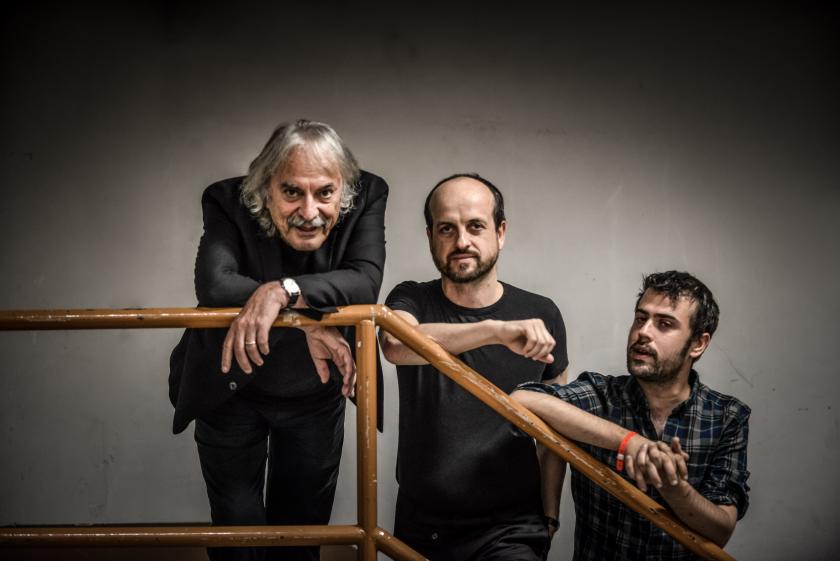There was an Italian flavour to the EFG London Jazz Festival programme at Kings Place on Thursday night. Enrico Rava is an eminent statesman of European jazz, who emerged in the 1960s as a disciple of Miles Davis. He was collaborating with young pianist Giovanni Guidi, also recorded on ECM, though best known for diaphanous soundscapes rather than free jazz at its most raw and bloody. They were joined by electronic music pioneer Matthew Herbert, who now has a distinguished presence across opera, theatre, film and books, as well as improvised electronica.
Last night’s gig was the first outing for this trio (visually a quartet - Herbert had an assistant), and while there was never any doubt about the individual qualities of the performers, it wasn’t, perhaps, an obvious stylistic match. Rava is an improviser of impeccable pedigree, with a discography - latterly on the ECM label, distinctive for its lush, hushed aesthetic - covering many decades, collaborating with global jazz stars including Paul Motian, John Abercrombie and Enrico Pieranunzi. In these contexts, however, his experimentation has been expressed in subtle microtones, and delicate textural collage. Last night’s show demanded a much more forthright style, and while there were moments of great interest, much of his usual range of expression was lost in the exchange of fire with Herbert, in particular.
Murgia managed to sound both contemporary and timeless
Herbert has such power at his disposal that even a trumpet and grand piano sometimes struggle to keep up, and parts of the opening ten minutes were shrill and raucous. The upper registers of all three instruments can, we discovered, all make a loud, high-pitched noise together. It was thrilling and visceral for a short period but the novelty wore off quite quickly. As the set progressed, the trio seemed to settle to one another’s strengths. Herbert played a witty compilation of film dialogue (Rava is also a distinguished film composer), and the stridency of the opening section gave way to a more playful, rhythmically intricate passage, which better exploited Rava’s incisive yet minimalist approach.
Guidi, the least experienced of the three, understandably seemed least at ease, but towards the end of the set, he found a lighter, gentler musical dialect that worked better than the intensely percussive sections at the start. No jazz pianist today can leave the insides of the piano alone, it seems, but Guidi’s ethereal strumming helpfully lightened the timbre of the ensemble, and his snatches of melody - almost stride piano - were an enjoyable contrast. There was a small-scale walkout towards the end of the set, done with perfect English discretion, of course, and a degree of frustration was understandable. It’s likely that two such talents as Rava and Herbert will soon get to know one another better. On the strength of last night, however, both had lots to say, but not always to each other.
Sardinian saxophonist and singer Gavino Murgia has created a genre of his own as a versatile improviser, particularly notable for the visceral richness of his throat-singing style, with an awesome bass tone, whose massiveness seems to seethe from the earth beneath like a vast, seismic sigh. He began with solo improvisations on voice, soprano saxophone and flute, sometimes using loops to accompany himself, as he weaved a seamless and evocative swirl of harmony. Both free in style, yet infused with the tones of Sardinian folk music, he managed to sound both contemporary and timeless.
He was joined for the final section of his performance by fellow Sardinian singer Filomena Campus, whose fluid middle range leavened his rasping rumble. Most of the set was wordless, with only a few lyrics at the end of the set, yet they spanned a musical vision that spoke intimately of Sardinian history and landscape. Unlike, it must be said, the starry trio who followed, this pair knew one another’s music intimately, and while their ambition was perhaps more modest, the effect was utterly compelling.














Add comment